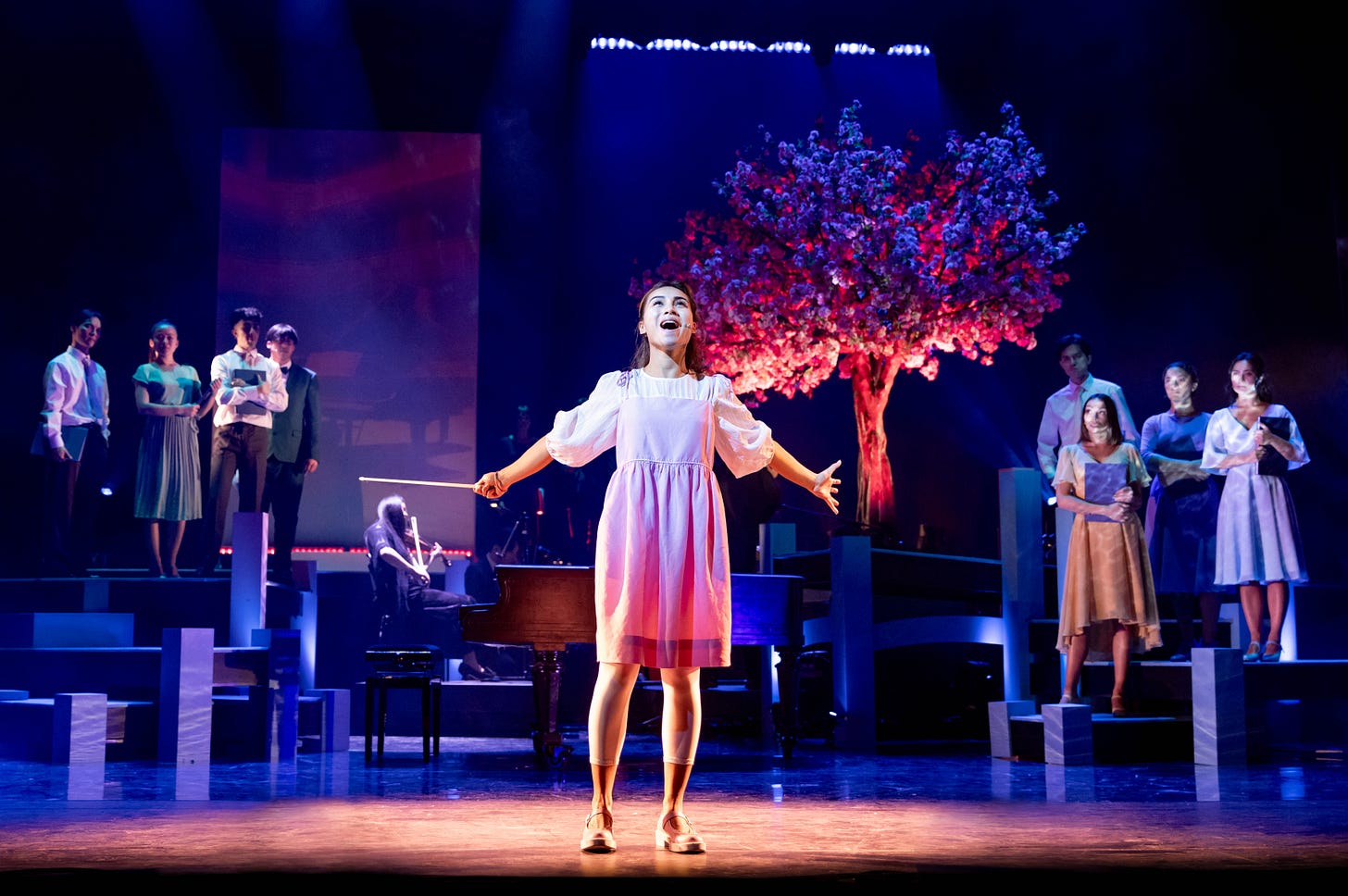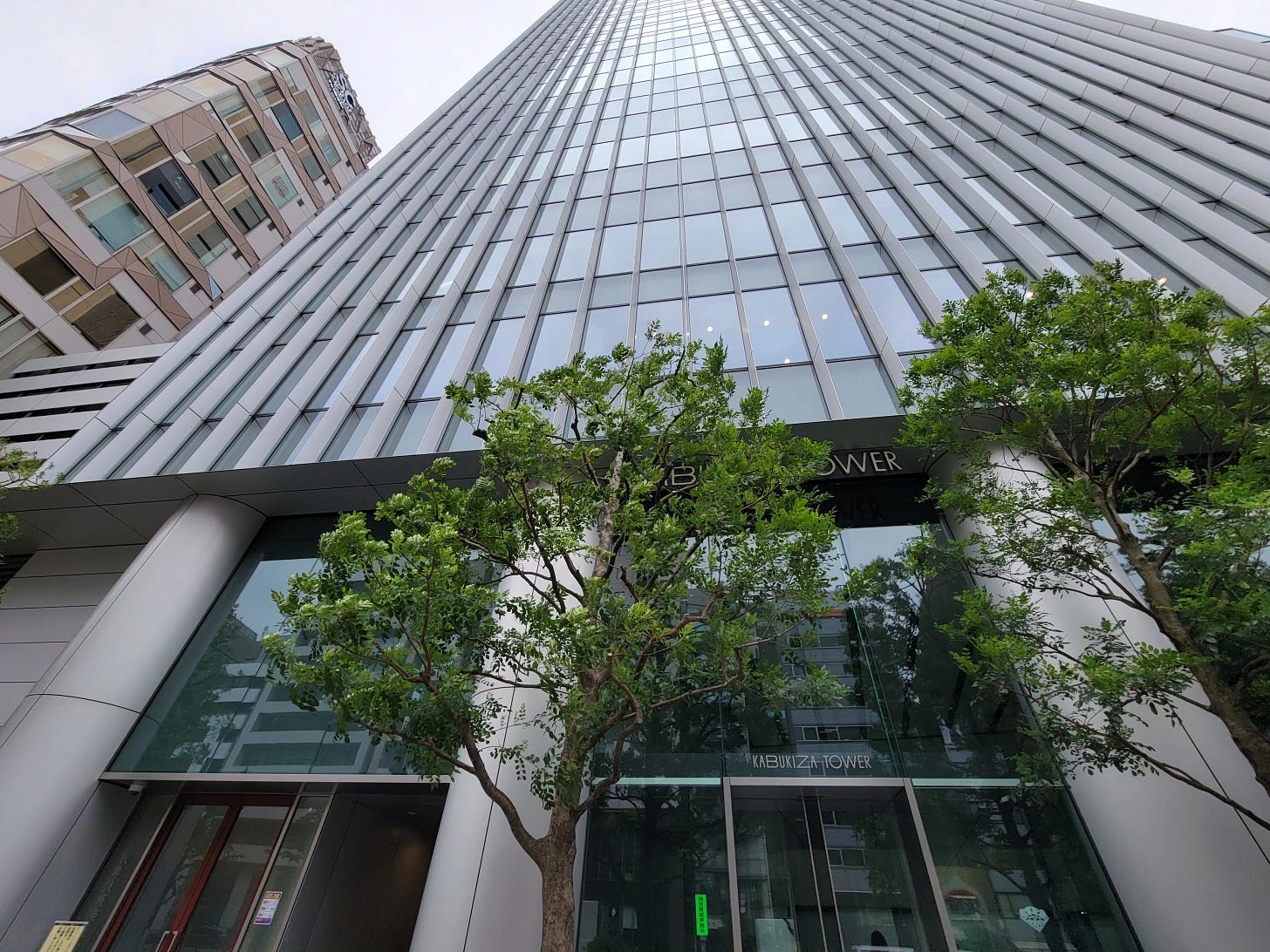Sony bolsters Crunchyroll with cinema acquisition
Plus: Anime and manga stage productions seek audiences abroad; Japanese gov't plans manga, anime museum in 2028; Kadokawa hit with ransomware attack; and more
This is your weekly Animenomics briefing, covering the business of anime and manga. Today is Wednesday, June 19, 2024.
In case you missed it: Crunchyroll president Rahul Purini told Australian media trade publication Mediaweek that the anime streaming platform saw 30 percent growth in viewership in the country over the last 12 to 18 months.
Sony’s Crunchyroll to benefit from cinema experiences

Sony Pictures Entertainment is seeking to enhance anime viewing experiences in movie theaters in the United States by acquiring Alamo Drafthouse Cinema, a dine-in cinema chain known for its curated film events and festivals.
Why it matters: Sony is the first major Hollywood film studio to purchase a film exhibition company since the U.S. Department of Justice lifted a 72-year ban on the practice in 2020.
What they’re saying: “We believe strongly in engaging entertainment fans outside the home in fun and distinctive ways,” said Sony Pictures chief operating officer Ravi Ahuja in a statement.
“Alamo Drafthouse’s differentiated movie-going experience, admired brand and devoted community fit well with this vision. Our Crunchyroll business also aligns well with their audience’s interests,” Ahuja added.
Rewind: In a headline presentation at CinemaCon earlier this year, Crunchyroll made the case for the movie theater industry to bring more anime films to North American audiences.
Crunchyroll senior vice president of global commerce Mitchel Berger argued that the anime audience isn’t too niche for movie theaters.
At the Annecy animation festival last week, Berger told Deadline, “From a fan perspective, the theatrical experience is key. Getting together in that community in the theater is really important to anime fans.”
By the numbers: Founded in 1997, Alamo Drafthouse is North America’s seventh-largest cinema chain in terms of box office revenue, IndieWire reports.
Box office sales for the company grew 30 percent year-over-year in 2023 to US$134 million.
Today, Alamo Drafthouse has 35 locations across North America, with 15 of them being franchise locations.
Yes, but: Alamo’s footprint actually shrunk earlier this month when a franchisee went bankrupt and closed six locations in Texas and Minnesota.
Variety reports the franchisee lost more than US$1 million due to poor box office performances in the fourth quarter of 2023 and first quarter of 2024.
Anime and manga musicals set sights on stages abroad

Musical theater adaptations of anime, manga, and video games are setting their sights on markets outside Japan as the live entertainment industry leaves behind the slump of the COVID-19 pandemic.
Why it matters: 2.5D musicals, as these adaptations are called, now make up over 40 percent of total musical theater revenues in Japan, up from 27 percent in 2019.
Musical theater adaptations of anime, manga, and video games earned ¥26.2 billion (US$166 million) domestically in 2022, its highest level on record, data compiled by the Pia Research Institute shows.
Driving the story: An English-language musical theater adaptation of the manga and anime Your Lie in April will begin a 12-week run in London’s West End from June through September.
The production follows the performance of a concert version of the musical earlier this year at London’s Theatre Royal, Drury Lane.
Your Lie in April’s original production, performed in six cities in Japan in 2022, was co-produced by Fuji Television and Toho, with the former also serving on the production committee of the 2014 anime series.
Backgrounder: Japan popularized 2.5D musicals in 2003 with the performance of Musical: The Prince of Tennis, based on the manga of the same name.
The success of the English-language My Neighbour Totoro stage play at last year’s Laurence Olivier Awards, the most prestigious awards in British theater performance, has also spurred interest in Japanese theater and musical productions.
Zoom out: Makoto Matsuda, chairman of the Japan 2.5-Dimensional Musical Association and founder of the stage production company Nelke Planning, told Nikkei Entertainment! magazine that the growing demand for Japanese content makes this moment the right time for the theater industry to expand overseas.
The Association, which celebrates its 10th anniversary this year, is also advocating for the construction of a performance theater dedicated to 2.5D musicals.
Clippings: Gov’t plans manga, anime museum in 2028

A Media Arts National Center operated by the Japanese government is slated to open in 2028 to preserve and exhibit original manga art and animation cels and to prevent them from being scattered and sold overseas. (The Yomiuri Shimbun)
Totto-Chan: The Little Girl at the Window, an anime film based on an autobiographical novel of actress Tetsuko Kuroyanagi, won the Paul Grimault Award at the Annecy International Animation Film Festival. (The Yomiuri Shimbun)
South Korea’s webtoon platforms, facing growing competition from TikTok and YouTube, saw declining mobile usage accelerate this year after last year’s 5.8 percent decrease from peak usage in 2022. (The Korea Economic Daily)
China’s animation studios exhibited more than 30 titles last week at Annecy, signaling that the country’s animation industry is betting on films to expand its audience abroad. (The Hollywood Reporter)
Gundam Factory Yokohama operator Evolving G, whose Gundam giant robot exhibition complex closed at the end of March, saw net profit grow 279 percent to ¥847 million (US$5.36 million) in its final year of operation. (Gamebiz)
Yes, but: The company still lost more than ¥2.86 billion (US$18.2 million) over the six years it was in operation.
Editorial calls for increased protection of authors’ rights
“Alterations during dramatizations of books or manga are not uncommon. However, original authors have the ‘right to integrity,’ or the right to preserve the identity of their creations against unwanted modifications. […] Behind this issue lies the industry's practice of relying on verbal agreements rather than written contracts before broadcasts. It is crucial to clearly define and document the terms under which a work is adapted to the screen.”
— The Mainichi editorial
Context: An editorial in national newspaper The Mainichi called on the Japanese entertainment industry to better protect the rights of original authors when their works are turned into screen adaptations.
Catch up quick: Earlier this month, Nippon Television published the results of its internal investigation into the events leading up to the death of manga artist Hinako Ashihara, who objected to changes made to a television drama adaptation of her work Sexy Tanaka-san.
“It is questionable how well Nippon TV understood the author’s rights,” the editorial writes.
Cyberattack cripples Niconico, publishing at Kadokawa
Media company Dwango and its publishing conglomerate parent Kadokawa are still scrambling to restore many corporate operations more than one week after a ransomware attack targeted Dwango’s Niconico video sharing service.
Why it matters: The cyberattack, which locked out private servers in Kadokawa’s own data centers and virtual machines, impacted core business functions such as book production, e-commerce, and accounting systems.
What they’re saying: On Monday, Kadokawa told Dow Jones Newswires that its main network and server environment won’t be restored until the end of June.
The company also expects that full restoration of Niconico, which was a ¥15.8 billion (US$100 million) business last year, will take more than one month.
Several other websites operated by Kadokawa, such as that of the popular Sgt. Frog manga franchise, also remain unaccessible as of publication.
The bigger picture: Cyberattacks on Japanese companies are increasing, says a report by The Diplomat, but the government doesn’t have a coordinated strategy on cyber defense.
Animenomics is an independently-run and reader-supported publication. If you enjoyed this newsletter, consider sharing it with others.




I'm ambivalent about Sony's acquisition of Alamo Drafthouse. While this could be a win for anime theatrical distribution in North America if they're able to expand the theater chain, it could also very much in the long run be the catalyst the other Big Five studios following suit, creating a favoritism situation that'll hurt smaller studios.